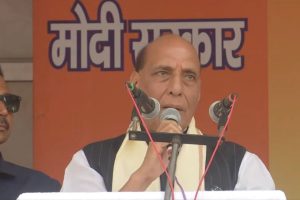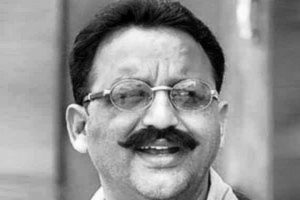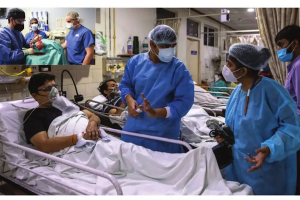Presently, there are around 110 national and main regional news channels in India adding to several local/district level/city levels. With continuing growth of this industry, demand for professionals is on the rise. While many youngsters cherish to be part of a so called glamorous career where millions can watch them, it is pertinent to know that beyond visible faces of anchoring or reporting, there are many opportunities. Given below are only some of the career options in the dynamic television news industry.
journalism: This has become one of the most sought after career choices these days. It is not only a well-paid profession, but also provides recognition and fame. Initially, one may start as a reporter then gradually rise on the ladder as senior reporter, editor, news anchor and so on. The big names like Barkha Dutt, Arnab Goswami, Rajdeep Sardesai and Ravish Kumar are some of the fine examples of Indian TV Journalism. These days it is common for reporters or producers/assistant producers to double up as anchors.
Media research: The functional responsibilities of this domain includes researching factual information for documentaries, content research, research on viewers’ perception, keeping a tab on other news channels, ideation of new programme concepts, etc. Being internet savvy and well-informed, good writing skills, analytical abilities are some of the prerequisites that a media researcher needs to possess. Though any graduate can apply for this job, a professional degree in mass communication or journalism is always preferred by employers.
Advertisement
Television producer: A television producer is a person who oversees all aspects of a television programme or the video production. There are two distinct varieties of television producers. Those who work in an executive role like coming up with a new programme and pitching it to the television network, managing the budget of the production and keeping an eye on the production etc. Some producers are more involved with the creative side such as screen writing, set-design, location setting, and directing. A professional qualification in television and broadcast journalism is helpful to enter this career option.
Cinematographer/videographer: If you have the madness to see everything in a rectangular frame and like to visualise things/situations, then this is the right career for you. A person entering this industry starts as a camera operator/attendant and gradually rises to director of photography or the head of the cinematography department. The cinematographer/videographer takes decisions regarding the scientific and creative aspects of shooting which includes lighting, type of lenses to be used, filters, etc.
Film/TV editor: An editor knows well how to tell a story by joining or mixing images/shots, graphics and sound with each other. Like the cinematographer, the editor also needs both technical and creative expertise. It is essential for an aspiring editor to get formal training from a good institution. Some mass communication and film-making institutions offer specialised programmes in linear and non- liner editing for television/films.
Guest coordinator: They maintain a huge data bank of potential guests which includes politicians, writers, social activists, entrepreneurs, academicians, and advocates among others. A guest coordinator builds a good rapport with these opinion leaders and high-profile people. Though they were there in the industry during the 90’s, their demand in news channels these days has increased manifolds.
Television news industry is an exciting and creative career option for those who have aptitude or inclination towards one or more of these functional areas.
The writer is director, Apeejay Institute of Mass Communication.
Advertisement











